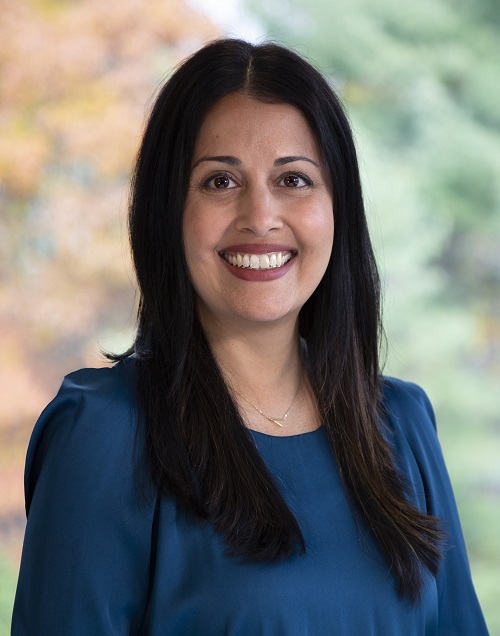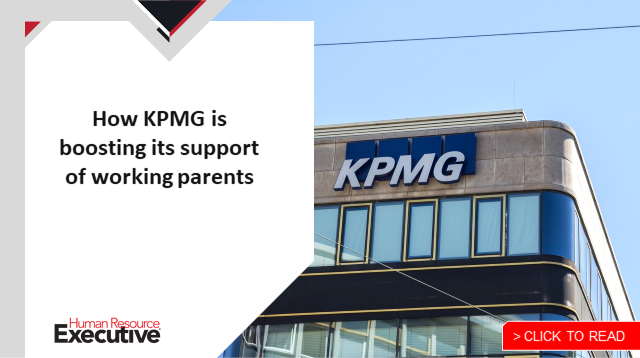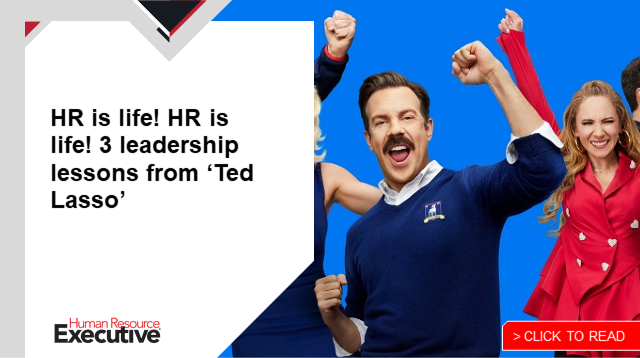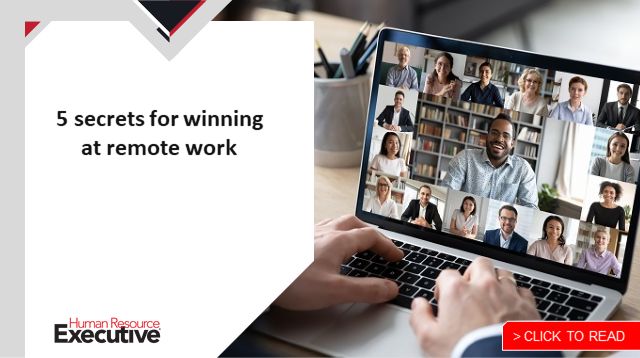The last few years of the COVID-19 pandemic have unleashed a whirlwind of lessons for HR leaders. For Purvi Tailor, vice president of HR at Ferring Pharmaceuticals, U.S., chief among them has been the need for leaders to exercise empathy and inclusion. Both are at the heart of an impressive set of family-building benefits that the global biopharmaceutical company rolled out last month.
All 6,000-plus Ferring employees are now eligible for 26 weeks of parental leave, for both birthing and non-birthing parents. The employer—which develops treatments in areas that include reproductive and maternal health—is offering unlimited financial support for fertility, adoption and surrogacy, as well as extra PTO for fertility treatments and adoption proceedings. If employees suffer a miscarriage or stillbirth, they are now eligible for at least four weeks of additional leave time. The company is also undertaking awareness-raising efforts to enhance support and understanding throughout the company for family-building journeys.
It’s an experience that Tailor herself has gone on, which she says heightened her appreciation for the need for employers to build empathy into their benefits.
“I would really encourage my fellow HR colleagues and business leaders to think through how they can best support their employees on this [family-building] journey, in the U.S. in particular, where we can do so much more to support parents at this stage,” she says. “Hopefully, we at Ferring can lead by example.”
Tailor—whose HR career has taken her to companies including Johnson & Johnson, American Express and JP Morgan—recently shared with HRE more about the spirit behind and goals for strengthening support for Ferring’s employees.
HRE: What was the impetus for Building Families at Ferring?

Tailor: Ferring has always prided itself on being a family-friendly place to work. In addition to that, one of our core missions is to help people build families and live better lives. So, offering an expansive set of benefits like this is very much in line with who we are and the business we’re in. And as a company, we’re always striving to be better and do better. Certainly, from an attraction and retention standpoint, this is also an attractive option for some people depending on where they are in their lives. There are also a lot of external dynamics outside of Ferring when you look at fertility issues and the challenges people have. We know that one in eight couples has trouble conceiving or getting a baby to term, and we also know that people are having families later in life. So, given these trends and dynamics, along with our mission as a company, it made a lot of sense for us to move forward with a more generous package like this.
HRE: What’s the reaction been like from employees?
Tailor: The response has been really, really incredible. We’ve held several different sessions with employees and have been talking about this for several months. First, there was surprise [among employees] at not just the generous nature of parental leave but also the expansiveness of the full policy when you think about financial support as well as the work we’re doing within the company to make these issues something we’re all open to talking about. So, it was first surprise and then a lot of joy. A lot of people here are looking at building families and we’ve had some people come forward who said they didn’t think they could do it before but now, with this package and support, they feel like they can move forward. Those are great stories to hear.
 For me personally, I had a very long journey from a fertility perspective and am so grateful to now have a daughter who’s 7 but I can’t even imagine having this amazing set of benefits that would have supported me and my partner through our journey. That would have been a game changer.
For me personally, I had a very long journey from a fertility perspective and am so grateful to now have a daughter who’s 7 but I can’t even imagine having this amazing set of benefits that would have supported me and my partner through our journey. That would have been a game changer.
HRE: How does the new Summer Friday program fit into the organization’s overall approach to employee wellness?
Tailor: Summer Friday is part of a broader strategy. The program allows all office-based employees to take every Friday from June 3-Sept. 3 off after 1 p.m. Essentially, all operations shut down and everyone is free to do whatever they want—get a head start on their weekend, go to see a movie, lay on the couch—whatever it may be. We also recognize that part of our workforce is in the manufacturing facilities so they don’t have the ability to leave the line exactly at 1. So, in order to meet their needs, we’re offering them five extra full days off between June and the end of the year. That’s our way of making sure they’re getting that time for flexibility and to recharge and come back to work refreshed.
There are other [wellness] things we’re also doing and they’re small but I think they can go a long way. We’re bringing back chair massages—we’ve done it twice—and we also have a beautiful campus with an outdoor path people have been taking walking meetings on. I myself have done many of these; I’ve clocked in 1.5-2 miles where I’m just walking and talking. We also have a couple of quiet rooms/meditation rooms within the building where, if people need a time out, they can just go in there. And we have a great restaurant on campus as well with healthy food options and a strong culture where people are encouraged to go eat together and connect. All of these things come together to create a workplace that, I believe, enables wellness.
HRE: What have been some of the most impactful lessons from the pandemic that have helped you find success in your day-to-day work?
Tailor: There have been a lot of lessons learned, but there are two I would highlight. The first is around the importance of bringing empathy into the workplace in a very deliberate way. The pandemic, as we all know, has blended work and life; everything became one because it was all happening at home for many people. So, we saw empathy become so much more prevalent and at the forefront of how people were leading. We needed to go there and it’s wonderful to see how it has carried over still. Empathy is the new normal for the workplace.
The other piece is around gratitude. Personally, I have always kept a gratitude journal and just jot down three things every day I’m thankful for. They’re usually very small, like a great cup of coffee, great conversation or no traffic on the way to work. In the pandemic, it’s become even more important for leaders to come forward and remind people of the things that are going well. There’s a quote I love: “Define reality but give people hope.” Sometimes, things can seem really bleak but, in reality, there are silver linings that are always there for the most part. That’s something I really try to focus on with my team and peers—to make sure they’re being balanced in how they see the world. Now, I start all of my team meetings and my HR leadership team meeting with a few minutes of gratitude. People don’t have to participate but if they have something they’re grateful for, they’re free to share.
HRE: What sparked your interest in HR to begin with?
 Tailor: It was sparked pretty early on. I always had summer jobs prior to going to college and developed an interest then in how things ran and what drove people to work at certain places. And then when I was at university—I went to the University of Michigan—through my courses, I realized by my junior year that I wanted to work in the HR field. I had a summer internship at what was then JP Morgan and eventually converted from a summer intern to a full-time hire. That’s where my career started—as a young, hungry professional working in New York City.
Tailor: It was sparked pretty early on. I always had summer jobs prior to going to college and developed an interest then in how things ran and what drove people to work at certain places. And then when I was at university—I went to the University of Michigan—through my courses, I realized by my junior year that I wanted to work in the HR field. I had a summer internship at what was then JP Morgan and eventually converted from a summer intern to a full-time hire. That’s where my career started—as a young, hungry professional working in New York City.
HRE: How have you seen the role of the HR leader evolve during your time in the field?
Tailor: It’s shifted a lot in the last 25 years. I was in HR for many years and then left for several to try some other things and that gave me a very good perspective of what HR is and the role it has in the organization. Stepping outside of the function helped me to see the function more clearly and that has been a good lens to have. In terms of the biggest shifts I’ve seen—outside of the “seat at the table”—inclusion, for me, has been something that hasn’t big as big of a topic until maybe the last 10 to 15 years. The pandemic really served as an accelerator for many trends that now are maybe five or 10 years more along than they would have been, and inclusion is one of those things.
For one, it’s the issue of authenticity and people’s ability to bring their whole self to work, which is very different than in my days at JP Morgan. It was less about bringing yourself to work and more about fitting into the mold that was set—not by JP Morgan but companies in general. Now, there’s much greater acceptance of who people are outside of work and the idea that it’s OK to bring that into the workplace. That means a lot of different things for culture, engagement and what the workplace is for people so that’s been a very significant change.
There’s also a much bigger expectation around balance—what employees want is potentially just as important as what employers want. That feels very different from the first 10 years of my career, where things were more heavily weighted toward employers. Now, the pendulum is swinging to the employee and their needs and wants are much more critical when making decisions. The complicated part is to find the right balance of what’s right for the company and what’s right for the employees.
 HRE: Outside of work, what occupies most of your time?
HRE: Outside of work, what occupies most of your time?
Tailor: I have many passions outside of work, one is my 7-year-old daughter. I know time is moving fast, even though that’s so cliché. In the pandemic, one of the learnings was that I want to soak up every moment I can of her and this time I have before she enters a point in her life where her parents are a less critical part of her day. Also, I love reading, cooking; when I have time, I love to cook ridiculously delicious meals for friends and family. I’m a big connector in terms of my family and my close circle of friends, so my passion is just really showing up for them and being a part of their lives and vice versa. It’s all about relationships at the end of the day.
The post Why this biopharma company is giving new parents 6 months of leave appeared first on HR Executive.